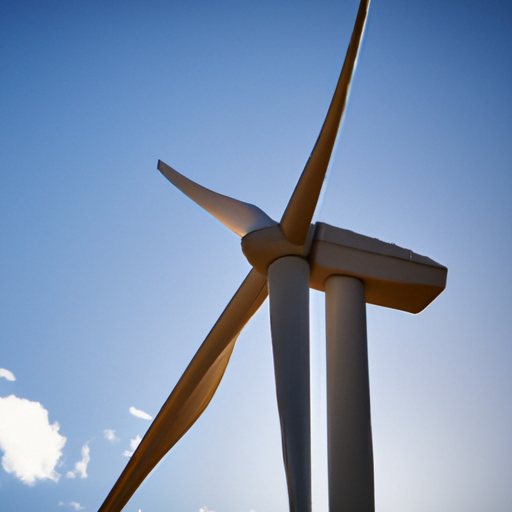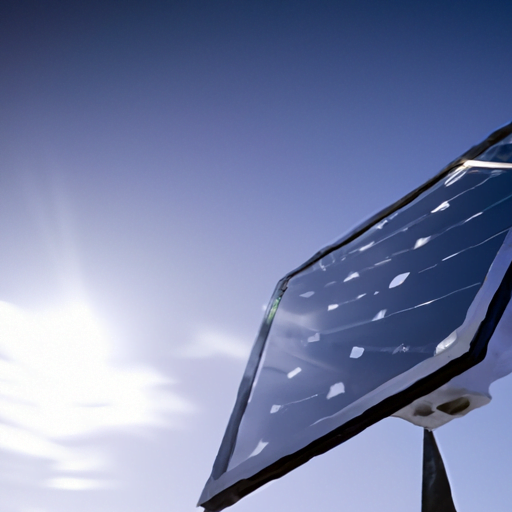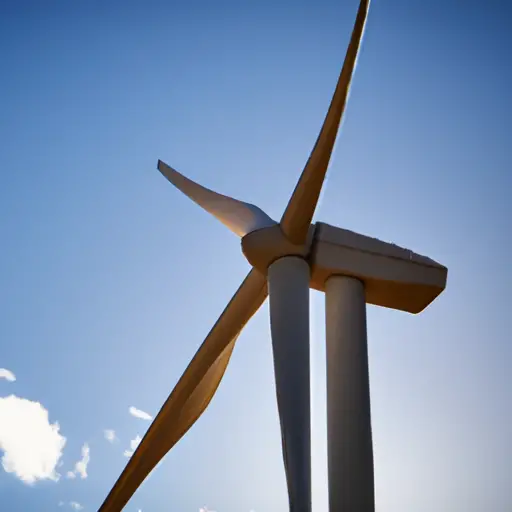Living off-grid has become an increasingly popular lifestyle choice for those seeking independence and sustainability. In this article, I will explore the crucial role that technology plays in supporting and enhancing off-grid living. From solar panels to water purification systems, innovative technologies are transforming the way we generate energy, access clean water, and communicate in remote areas. So, let’s dive into the fascinating world where technology and off-grid living intertwine. Technology plays a crucial role in off-grid living, enabling individuals and communities to become more self-sufficient, sustainable, and resilient. In this article, I will explore various areas where technology can be utilized to enhance off-grid living, including energy generation, storage, water management, food production, communications, transportation, waste management, healthcare, security, and education. By leveraging technological advancements, off-grid living can become more accessible, efficient, and enjoyable.

Energy Generation
Solar Power
Solar power is a popular choice for off-grid energy generation due to its abundance and reliability. Utilizing photovoltaic cells, solar panels can convert sunlight into electricity, allowing off-grid homes and communities to power their appliances, lights, and other electrical devices. Solar power systems can be designed to meet specific energy needs, and excess electricity can be stored for later use.
Wind Power
Harnessing the power of the wind is another effective method of energy generation in off-grid scenarios. Wind turbines convert the kinetic energy of moving air into rotational energy, which can then be used to generate electricity. Wind power is particularly suitable for locations with consistent wind patterns, such as coastal areas or open plains. By combining wind power with other renewable energy sources, off-grid living can become even more sustainable.
Hydro Power
Hydropower utilizes the energy of flowing or falling water to generate electricity. Off-grid communities situated near rivers, streams, or waterfalls can take advantage of hydroelectric systems to produce clean and renewable energy. By running water through turbines, which are connected to generators, hydropower systems can generate electricity consistently and reliably. This method of energy generation is especially advantageous in areas with abundant water resources.
Energy Storage
Batteries
Energy storage is crucial in off-grid living, as it allows the utilization of renewable energy sources even when the sun is not shining, the wind is not blowing, or water flow is minimal. Batteries play a pivotal role in storing excess energy generated from sources like solar, wind, or hydro, for later use. By using deep-cycle batteries, off-grid homes can store electricity and have it readily available during cloudy or windless days.
Fuel Cells
Fuel cells offer an alternative energy storage solution for off-grid living. These devices convert hydrogen or other fuels into electricity through an electrochemical process. Unlike batteries, fuel cells can operate continually as long as fuel is supplied, making them suitable for off-grid environments where continuous power supply is essential. Fuel cells can be used in conjunction with renewable energy sources or as a standalone power system.
Pumped Storage
Pumped storage is a method of energy storage that utilizes the potential energy of water. During times of excess electricity generation, water is pumped from a lower reservoir to a higher one, storing the energy. When electricity demand surpasses supply, the stored water is released, flowing back to the lower reservoir, driving turbines and generating electricity. Pumped storage systems provide flexible and efficient energy storage for off-grid communities.
Water Management
Rainwater Harvesting
Rainwater harvesting is a vital aspect of off-grid water management. By collecting rainwater from rooftops or other surfaces, off-grid dwellings can ensure a reliable and sustainable water supply. This collected rainwater can be stored in tanks or cisterns for later use, such as irrigation, bathing, or drinking purposes. With the assistance of technology, rainwater harvesting systems can be optimized to maximize water collection and minimize wastage.
Water Filtration
Ensuring access to clean and potable water is of utmost importance in off-grid living. Water filtration systems, such as reverse osmosis or activated carbon filters, can effectively remove contaminants and impurities from water sources, making them safe for consumption. These systems can be powered by renewable energy sources, further enhancing their compatibility with off-grid lifestyles. The availability of clean water contributes to the overall well-being and sustainability of off-grid communities.
Greywater Systems
Greywater systems allow off-grid dwellings to reduce water wastage by reusing water from sources like sinks, showers, and laundry. With the help of filtration and treatment systems, greywater can be recycled and repurposed for non-potable uses such as toilet flushing or irrigation. By incorporating greywater systems into off-grid living, water consumption can be minimized, leading to increased self-sufficiency and conservation.

Food Production
Aquaponics
Aquaponics combines aquaculture (fish farming) with hydroponics (soilless plant cultivation) to create a mutually beneficial symbiotic system. In an aquaponics setup, fish waste provides nutrients for plants, while the plants filter and clean the water for the fish. By utilizing technology like water pumps, sensors, and controlled environments, off-grid communities can produce a steady supply of fish and vegetables year-round, regardless of location or climate.
Hydroponics
Hydroponics is a soilless method of growing plants by providing all the necessary nutrients directly through water. This allows plants to grow faster and more efficiently while using less water and space compared to traditional farming methods. With technological advancements, off-grid individuals can set up hydroponic systems in limited spaces, such as small greenhouses or indoors, enabling uninterrupted food production even in remote or harsh environments.
Permaculture
Permaculture is a holistic and sustainable approach to food production that aims to mimic natural ecosystems. By utilizing permaculture principles, off-grid communities can create self-sustaining and resilient food systems. Techniques such as companion planting, mulching, and natural pest control help reduce the reliance on external inputs and chemical interventions. Technology can assist in the implementation of permaculture practices, such as soil analysis, weather monitoring, and automated irrigation systems.
Communications
Satellite Internet
Off-grid living doesn’t mean being disconnected. Satellite internet technology enables individuals and communities to access high-speed internet connections regardless of their geographical location. By utilizing satellite dishes and receivers, off-grid dwellings can maintain communication, access online resources, and stay connected with the world outside. This technology is especially valuable in remote areas where traditional broadband connections are unavailable.
Two-Way Radios
Two-way radios, also known as walkie-talkies, offer a reliable and efficient means of communication in off-grid environments. These portable devices allow individuals to communicate over short distances, making it easier to coordinate tasks, share information, or call for help. With extended range models and improved battery life, two-way radios have become an essential tool for off-grid living, facilitating effective communication without the need for cellular networks.
Mesh Networks
Mesh networks enable off-grid communities to create their own decentralized communication infrastructure. By connecting multiple devices through wireless links, mesh networks can transmit data, voice, and multimedia over a network without relying on centralized hubs or internet service providers. This technology is particularly beneficial in areas with limited or no internet connectivity, empowering off-grid communities to establish their own reliable and resilient communication networks.
Transportation
Electric Vehicles
Electric vehicles (EVs) offer a cleaner and more sustainable mode of transportation for off-grid living. With advancements in battery technology, EVs can offer substantial range and performance, providing a reliable means of transportation even in remote areas. By utilizing renewable energy sources for charging, off-grid dwellings can ensure that their transportation needs are met without relying on fossil fuels, reducing both carbon emissions and operating costs.
Bicycles
Bicycles are an eco-friendly and cost-effective means of transportation that perfectly complement off-grid living. They provide a sustainable alternative to motor vehicles, allowing individuals to travel shorter distances efficiently and conveniently. With the advent of electric bicycles (e-bikes), off-grid communities can enjoy the benefits of assisted pedaling, making uphill climbs and longer journeys more accessible. Bicycles promote a healthier lifestyle, lower carbon footprint, and a stronger connection with the surrounding environment.
Biofuels
Biofuels offer an alternative to traditional fossil fuels for off-grid transportation. Produced from organic matter such as crops, plant residues, or waste oils, biofuels can power vehicles and machinery while reducing greenhouse gas emissions. By utilizing technology such as biodiesel processors or biogas generators, off-grid communities can produce their own biofuels, ensuring a renewable and sustainable energy source for transportation needs.
Waste Management
Composting Toilets
Composting toilets provide an environmentally friendly solution for off-grid waste management. By relying on natural decomposition processes, these toilets convert human waste into nutrient-rich compost, which can be used as fertilizer for plants. Composting toilets require no water or sewage infrastructure, making them suitable for off-grid environments. With the aid of technology, composting toilets can be designed with improved odor control, ventilation systems, and efficient composting mechanisms.
Biogas Digesters
Biogas digesters offer a dual-purpose waste management system that converts organic waste into biogas and fertilizer. Microorganisms break down organic materials in an anaerobic environment, producing methane-rich biogas that can be used for cooking, heating, or electricity generation. The remaining digestate can be used as nutrient-rich fertilizer for agriculture. By utilizing biogas digesters, off-grid communities can efficiently manage waste while harnessing renewable energy for various purposes.
Recycling Systems
Proper waste management includes the effective implementation of recycling systems. Off-grid communities can leverage technology to optimize recycling processes, ensuring that valuable materials are not wasted or discarded. Automated sorting machines, compactors, and shredders can improve recycling efficiency, enabling the recycling of various materials such as plastics, glass, metals, and paper. Emphasizing recycling in off-grid living contributes to resource conservation and reduces the environmental impact.
Healthcare
Telemedicine
Off-grid living poses unique challenges in terms of healthcare access, but technology can bridge the gap. Telemedicine allows individuals to receive medical consultations, diagnoses, and advice remotely, minimizing the need for physical visits to healthcare facilities. Through video conferencing and digital health platforms, healthcare professionals can connect with off-grid individuals, providing essential healthcare services and guidance, even in remote or underserved areas.
Portable Medical Devices
Portable medical devices play a vital role in off-grid healthcare, enabling individuals to monitor their health and receive immediate medical attention if necessary. Devices such as portable ECG monitors, blood glucose meters, or pulse oximeters allow for regular health monitoring without the need for frequent clinic visits. By utilizing technology, off-grid individuals can have access to accurate and reliable medical devices that improve their quality of life and enable early detection and intervention.
Health Monitoring Systems
Health monitoring systems offer a comprehensive approach to off-grid healthcare by integrating various technologies. These systems can include wearable devices, remote monitoring sensors, and data analysis tools to gather and analyze health-related information. By continuously monitoring vital signs and health parameters, off-grid individuals can detect potential health issues early on and make informed decisions regarding their well-being. Health monitoring systems empower individuals to take control of their health while ensuring access to healthcare expertise when needed.
Security
Solar-powered Security Cameras
Solar-powered security cameras provide an efficient and sustainable surveillance solution for off-grid living. By harnessing solar energy, these cameras can operate independently without requiring grid power connections. Solar-powered security cameras offer flexibility in placement, ensuring monitoring and deterrence in remote or unpowered areas. With the ability to record high-definition footage and connect to wireless networks, off-grid individuals can maintain a secure environment while minimizing their reliance on conventional power sources.
Smart Locks and Alarms
Smart locks and alarms enhance security in off-grid living by providing advanced access control and intrusion detection capabilities. These devices can be remotely controlled through smartphones or tablets, allowing off-grid individuals to manage entry points and monitor their premises. By incorporating features such as keyless entry, motion detection, and real-time notifications, smart locks and alarms offer convenience and peace of mind in off-grid environments, ensuring the safety of both property and occupants.
Motion Sensor Lights
Motion sensor lights play a crucial role in off-grid security, particularly during nighttime or low-light conditions. These lights automatically illuminate when motion is detected, providing enhanced visibility and deterring potential intruders. With the integration of solar panels and energy-efficient LED technology, motion sensor lights can operate without being connected to the grid, ensuring security even in remote locations without access to traditional power sources.
Education
E-learning Platforms
E-learning platforms empower off-grid individuals to access educational resources and acquire knowledge regardless of physical location. Through online courses, interactive modules, and virtual classrooms, e-learning platforms offer flexible and self-paced learning opportunities. By utilizing technology, off-grid individuals can gain new skills, pursue higher education, or enhance their existing knowledge, contributing to personal growth and community development.
Digital Libraries
Digital libraries provide off-grid communities with a vast repository of knowledge and information in various digital formats. By accessing e-books, audiobooks, scholarly articles, and educational materials, individuals can expand their understanding and engage in lifelong learning. Digital libraries can be particularly valuable in remote off-grid environments, bridging the gap between limited physical resources and the desire for intellectual growth.
Educational Apps
Educational apps offer a diverse range of learning tools and resources, tailored for different subjects, ages, and learning styles. These apps can be accessed on smartphones or tablets, allowing off-grid learners to access educational content even without an internet connection. From language learning and mathematical concepts to science experiments and historical events, educational apps cater to various interests and learning needs, making education engaging and accessible in off-grid settings.
In conclusion, technology plays a crucial role in enhancing various aspects of off-grid living. From energy generation and storage to water management, food production, communications, transportation, waste management, healthcare, security, and education, technology enables individuals and communities to lead self-sufficient, sustainable, and resilient lifestyles. By embracing technological advancements, off-grid living becomes more accessible, efficient, and enjoyable, empowering individuals to thrive in harmony with the environment.




